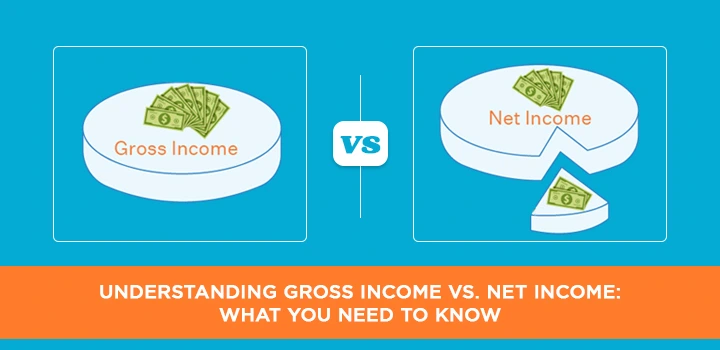-
Posted on: 21 Dec 2022

-
Dreaming of a summer getaway without the financial strain? This guide offers actionable money-saving tips for your summer vacation, helping you create unforgettable memories on a budget. Discover smart strategies for booking, accommodation, activities, and more, ensuring your trip is both enjoyable and affordable.
Smart Planning & Booking Strategies
The foundation of any budget-friendly vacation lies in meticulous planning and strategic booking. Proactive steps taken months in advance can unlock significant savings, setting the stage for a financially sound summer escape. In 2025, the travel landscape continues to evolve, with flexibility and foresight being key to maximizing your dollar.
Timing is Everything: Off-Peak Travel
One of the most impactful money-saving strategies is choosing when to travel. While summer is synonymous with vacation, the peak months of June, July, and August often come with inflated prices for flights, accommodation, and even popular attractions. Consider traveling during the shoulder seasons – late May, early June, or late August and September. These periods typically offer pleasant weather, fewer crowds, and notably lower costs.
Why Shoulder Season Saves You Money (2025 Data Insights
According to industry analysis for 2025, booking flights during the shoulder season can result in savings of up to 20-30% compared to peak summer. Accommodation rates can also drop by 15-25%. This is largely due to reduced demand, allowing providers to offer more competitive pricing. Furthermore, fewer tourists mean a more relaxed and enjoyable experience at popular sites.
Flexibility with Dates and Destinations
If your schedule allows, being flexible with your travel dates can open up a world of savings. Mid-week flights are almost always cheaper than weekend departures. Similarly, if you’re not tied to a specific destination, exploring lesser-known but equally beautiful locations can be significantly more budget-friendly. Instead of the iconic but expensive Eiffel Tower, consider a charming town in the Loire Valley. Instead of a crowded Caribbean beach, explore the stunning coastlines of Portugal or Croatia.
Destination Spotlight: Budget-Friendly Alternatives (2025 Trends
For 2025, destinations like Albania, Montenegro, and parts of Eastern Europe are gaining traction as affordable yet incredibly scenic alternatives to Western European hotspots. In Asia, countries like Vietnam and Thailand continue to offer exceptional value. For North America, consider exploring national parks outside of their peak season or visiting charming towns in the Midwest or South that offer unique cultural experiences without the hefty price tag of major coastal cities.
Early Bird vs. Last-Minute Deals
The age-old debate: book early or wait for last-minute deals? For summer vacations, especially with families, booking early is generally the safer bet for securing desired accommodation and flights at reasonable prices. However, for solo travelers or couples with flexible schedules, last-minute deals can sometimes offer incredible discounts, particularly on flights and package tours. It’s a gamble, but one that can pay off if you’re prepared to be spontaneous.
Analyzing Booking Windows for 2025
Data from 2025 travel booking platforms suggests that for international flights, booking 2-4 months in advance yields the best prices. For domestic travel, 1-3 months is often optimal. Accommodation booking windows vary, but securing popular hotels or unique rentals 3-6 months ahead is advisable for summer travel. Last-minute deals are more prevalent for cruises and all-inclusive resorts, often appearing 30-60 days before departure.
Leverage Loyalty Programs and Credit Card Rewards
Don’t underestimate the power of your existing loyalty programs. Airlines, hotels, and even car rental companies offer points or miles that can be redeemed for free flights, upgrades, or discounted stays. Similarly, travel credit cards often come with sign-up bonuses and earn rewards on everyday spending that can be put towards your vacation. Ensure you’re utilizing these benefits to their fullest potential.
Maximizing Rewards in 2025
In 2025, many travel credit cards are offering enhanced rewards for travel-related spending, such as booking flights or hotels directly. Look for cards with no foreign transaction fees if you’re traveling internationally. Consolidating your spending on a single card that aligns with your preferred travel brands can accelerate your rewards accumulation significantly.
Savvy Accommodation Choices
Where you stay can be one of the biggest drains on your vacation budget. Fortunately, there are numerous ways to find comfortable and affordable lodging without sacrificing quality or location.
Beyond Hotels: Exploring Alternatives
Hotels are often the default choice, but they aren’t always the most economical. Consider these alternatives:
- Vacation Rentals (Airbnb, VRBO): For families or longer stays, renting an apartment or house can be significantly cheaper than multiple hotel rooms. You also gain access to a kitchen, saving money on dining out.
- Hostels: Don't dismiss hostels as just for backpackers. Many offer private rooms that are more affordable than hotels, and they provide a social atmosphere and often communal kitchens.
- Guesthouses and Bed & Breakfasts: These often offer a more personal touch and can be more budget-friendly than larger hotel chains, especially in smaller towns or rural areas.
- House Swapping: If you're adventurous and have a desirable home, house swapping platforms allow you to exchange homes with someone in your desired destination, eliminating accommodation costs entirely.
Cost Comparison: Hotels vs. Rentals (2025 Estimates
For a family of four traveling for a week in 2025, a hotel stay in a moderate city might cost $150-$250 per night, totaling $1050-$1750. A comparable vacation rental could range from $100-$200 per night, totaling $700-$1400, with the added benefit of kitchen facilities. Hostels with private rooms might be even cheaper, around $70-$120 per night, totaling $490-$840.
Location, Location, Location (Strategically)
Staying directly in the heart of a major tourist hub often comes with a premium price tag. Consider staying a few train stops or a short bus ride away from the main attractions. You’ll likely find more affordable accommodation, and the commute can be an adventure in itself, offering a glimpse into local life. Research public transportation options before booking your accommodation.
Public Transport Accessibility Factor (2025 Travel Habits
In 2025, travelers are increasingly prioritizing destinations with robust public transportation networks. This allows them to save on car rentals and parking fees while reducing their environmental impact. When evaluating accommodation, check its proximity to metro stations, bus routes, or tram lines. A 10-minute public transport ride can often save you $50-$100 per night on accommodation.
Negotiate and Look for Deals
Don't be afraid to negotiate, especially if you're booking directly with smaller hotels or guesthouses, or if you're staying for an extended period. Look for package deals that combine accommodation with flights or activities, as these can sometimes offer better value. Sign up for newsletters from your favorite hotel chains to be alerted to special promotions.
Negotiation Success Rates in 2025
While direct negotiation is less common with large hotel chains, it can still be effective with independent establishments. For longer stays (a week or more), politely inquiring about a discount can yield results, with a success rate of around 20-30% for motivated travelers. Package deals, on the other hand, consistently offer savings of 10-15% when booked through reputable travel aggregators.
Cutting Down on Travel Costs
Getting to your destination and getting around once you’re there can be a significant expense. Smart choices in transportation can lead to substantial savings.
Flights: The Art of Finding Cheap Airfare
Flights are often the largest single expense for a vacation. Here’s how to minimize the damage:
- Use Flight Comparison Websites: Tools like Google Flights, Skyscanner, Kayak, and Momondo allow you to compare prices across multiple airlines and dates.
- Be Flexible with Airports: If you live near multiple airports, check prices for all of them. Sometimes flying out of a smaller, regional airport can be cheaper.
- Consider Budget Airlines: While they often have fewer frills, budget carriers can offer significant savings. Be sure to factor in baggage fees and other add-ons, as these can quickly inflate the price.
- Set Price Alerts: Most flight comparison sites allow you to set alerts for specific routes, notifying you when prices drop.
- Fly Mid-Week or Off-Hours: As mentioned earlier, Tuesday and Wednesday flights are typically the cheapest. Red-eye flights can also be a good option for saving money and maximizing your daytime hours at your destination.
2025 Flight Price Trends
For 2025, expect continued volatility in airfare. Airlines are closely monitoring fuel prices and demand. Budget airlines are projected to increase their market share, making them a more viable option for cost-conscious travelers. However, always read the fine print regarding baggage allowances and onboard services.
Ground Transportation: Alternatives to Taxis and Ride-Sharing
Once you arrive, relying solely on taxis or ride-sharing services can add up quickly. Explore these alternatives:
- Public Transportation: Buses, trains, trams, and subways are almost always the most cost-effective way to get around cities. Purchase multi-day passes for even greater savings.
- Rental Cars: If you need a car, book in advance and compare prices from various rental agencies. Look for deals that include unlimited mileage. Consider smaller, fuel-efficient vehicles.
- Walking and Cycling: For shorter distances, walking or renting a bike is not only free (or very cheap) but also a great way to explore a city and stay active.
- Airport Shuttles: Many airports offer shared shuttle services that are more affordable than private taxis.
Cost-Saving Ground Transport Examples (2025 Scenarios
In a major European city in 2025, a single taxi ride might cost $30-$50. A day pass for public transport could be $10-$15, saving $20-$35 per ride. Renting a compact car for a week might cost $250-$400, whereas relying on public transport and occasional ride-shares for specific needs could cost $100-$200 for the same period, depending on usage.
Consider Alternative Travel Methods
For shorter distances or if you have more time, consider travel methods beyond flying:
- Trains: Scenic and often more comfortable than flying, train travel can be a great option, especially in Europe and parts of Asia. Booking in advance can secure lower fares.
- Buses: Long-distance buses are typically the most economical way to travel between cities or regions, though journeys can be longer.
- Ferries: For island hopping or coastal travel, ferries can be a cost-effective and enjoyable mode of transport.
Train vs. Plane Cost Analysis (2025 Comparison
A train journey between London and Paris in 2025 might cost $70-$150 if booked in advance, compared to a flight costing $100-$250 (plus airport transfer costs). The train also offers city-center to city-center convenience, saving time and money on airport commutes.
Delicious Dining Without Breaking the Bank
Food is a crucial part of the travel experience, but it can also be a major budget buster. Smart dining choices can keep your taste buds happy and your wallet full.
Embrace Local Markets and Grocery Stores
This is perhaps the single most effective way to save on food. Instead of eating out for every meal, visit local markets for fresh produce, bread, cheese, and local delicacies. Grocery stores are your best friend for stocking up on breakfast items, snacks, and even ingredients for simple lunches or dinners if your accommodation has a kitchen.
Market Haul vs. Restaurant Meal (2025 Price Check
In 2025, a simple picnic lunch from a market in Rome might include fresh bread, local cheese, cured meats, and fruit, costing around $10-$15 for two people. A sit-down lunch at a tourist-area trattoria could easily cost $40-$60 for the same number of people. This highlights a potential saving of $30-$45 per meal.
Cook Some of Your Own Meals
If your accommodation has a kitchen or kitchenette, make use of it! Preparing breakfast and at least one other meal per day can dramatically reduce your food expenses. Even simple meals like pasta, sandwiches, or salads can be delicious and budget-friendly.
Kitchenette Savings Calculation (2025 Example
Assuming a traveler prepares breakfast and one simple dinner daily for a 7-day trip, and eats out for lunch and one dinner:
- Groceries for 7 breakfasts & 7 dinners: $150
- Eating out for 7 lunches & 7 dinners: $700 (average $50/day)
- Total if cooking: $150 + $700 = $850
- Total if eating out exclusively: $1400 (average $100/day)
- Savings: $550
Seek Out Local Eateries, Not Tourist Traps
Restaurants located right next to major attractions are often overpriced and offer mediocre food. Venture a few blocks away, look for places filled with locals, and check online reviews for authentic, affordable gems. Street food can also be a delicious and budget-friendly option in many destinations.
Identifying Local Favorites (2025 Strategy
In 2025, a good strategy is to use apps like Google Maps or Yelp, filtering for restaurants with high ratings and a significant number of reviews, then looking for those located away from the immediate tourist hotspots. Observe where locals are queuing – that’s usually a good sign!
Take Advantage of Lunch Specials and Happy Hours
Many restaurants offer more affordable lunch menus or "prix fixe" (set menu) options. Similarly, happy hour deals on drinks and appetizers can sometimes serve as a light dinner at a fraction of the cost.
Lunch vs. Dinner Price Difference (2025 Data
In many cities, a dinner entree might cost $25-$40, while the same dish on a lunch menu could be $15-$25. This 30-50% difference can add up considerably over a vacation.
Stay Hydrated Smartly
Buying bottled water constantly can be surprisingly expensive. Invest in a reusable water bottle and refill it whenever possible, especially in destinations where tap water is safe to drink. Many cafes and restaurants will happily refill your bottle for free.
Affordable Adventures and Experiences
Vacations are about making memories, and you don’t need to spend a fortune to have incredible experiences.
Free Activities Abound
Many of the best travel experiences are free! Take advantage of:
- Parks and Gardens: Explore local parks, botanical gardens, and natural reserves.
- Walking Tours: Many cities offer free walking tours (though tipping the guide is customary and appreciated).
- Museum Free Days: Check if museums offer free admission on certain days or evenings.
- Beaches and Nature Trails: Enjoy the natural beauty of your destination.
- People-Watching: Find a scenic spot in a public square and soak in the local atmosphere.
- Window Shopping and Exploring Neighborhoods: Wander through charming streets and soak up the local culture.
Top Free Activities in Popular Cities (2025 Examples
In Paris, enjoy a stroll through the Luxembourg Gardens or walk along the Seine. In Rome, marvel at the Pantheon from the outside and explore the charming Trastevere neighborhood. In New York City, walk across the Brooklyn Bridge or explore Central Park. These experiences are priceless and cost nothing.
Look for Discounted Attraction Passes
If you plan to visit multiple paid attractions, research city passes or multi-attraction tickets. These can offer significant savings compared to buying individual tickets, but do the math to ensure they are cost-effective for your planned itinerary.
Assessing Value of Attraction Passes (2025 Decision Guide
A common scenario: A city pass might cost $100 and include 5 attractions. If individual tickets for those attractions would cost $150, the pass saves you $50. However, if you only planned to visit 3 of those attractions, it might not be worth it. Always compare the pass cost to the sum of individual entry fees for the attractions you genuinely want to visit.
Seek Out Local Events and Festivals
Check local event listings for free concerts, festivals, markets, or cultural celebrations happening during your visit. These offer authentic experiences and a chance to immerse yourself in the local culture.
Finding Local Events in 2025
Local tourism board websites, community notice boards, and local newspapers (often available online) are excellent resources for discovering these events. Social media groups dedicated to your destination can also be a goldmine.
Embrace the Outdoors
Hiking, swimming, exploring natural landscapes – these activities are often free or low-cost and provide incredible experiences. Research local trails, beaches, and natural parks.
Outdoor Activity Cost Comparison (2025
A day of hiking in a national park might cost $10-$30 for entry and parking. A day at a theme park could easily cost $100-$200 per person. The value of outdoor experiences for a fraction of the cost is undeniable.
Student and Senior Discounts
If you qualify, always inquire about student or senior discounts at attractions, on public transport, and even at some restaurants. Carry your relevant identification.
Mastering Your Vacation Budget
A budget is your roadmap to financial success on vacation. Without one, it’s easy to overspend without realizing it.
Set a Realistic Overall Budget
Before you book anything, determine how much you can comfortably afford to spend on your entire vacation. Break this down into categories: transportation, accommodation, food, activities, shopping, and a buffer for unexpected expenses.
Budget Allocation Example (2025 for a $3000 Vacation
A sample budget for a $3000 vacation could look like this:
Category Budget Allocation Percentage Transportation (Flights/Train) $800 27% Accommodation (7 nights) $900 30% Food & Dining $600 20% Activities & Entertainment $400 13% Shopping & Souvenirs $150 5% Contingency/Buffer $150 5% Track Your Spending Diligently
Use a budgeting app, a spreadsheet, or even a simple notebook to record every expense. This helps you stay aware of where your money is going and allows you to adjust your spending if you’re going over budget in a particular area.
Popular Budgeting Apps for 2025
Apps like Mint, YNAB (You Need A Budget), PocketGuard, and Trail Wallet are excellent for tracking expenses on the go. Many offer features like receipt scanning and automatic categorization.
Be Prepared for Hidden Costs
Factor in potential hidden costs such as:
- Resort fees
- Baggage fees
- Foreign transaction fees
- Tips and gratuities
- Visa or entry fees
- Travel insurance (highly recommended!)
Understanding Travel Insurance Value (2025 Perspective
In 2025, travel insurance is more critical than ever. For a trip costing $3000, comprehensive travel insurance might cost $150-$300. While it seems like an added expense, it can save you thousands if a medical emergency, trip cancellation, or lost luggage occurs.
Withdraw Cash Strategically
While credit cards are convenient, using them abroad can incur foreign transaction fees. If you plan to use cash, withdraw larger amounts from ATMs at your destination to minimize per-transaction fees. Research the best exchange rates and avoid airport currency exchange kiosks, which often have poor rates.
ATM vs. Airport Exchange Rates (2025 Comparison
Using a debit card at a local ATM in your destination country typically provides an exchange rate very close to the interbank rate, often saving you 5-10% compared to airport kiosks.
Last-Minute Money-Saving Tricks
Even with the best planning, there are often opportunities to save money right before or during your trip.
Pack Smart to Avoid Fees
Checked baggage fees can add up quickly. Learn to pack light and efficiently, utilizing carry-on luggage whenever possible. Invest in packing cubes to maximize space and keep your belongings organized.
Carry-On vs. Checked Bag Fees (2025 Cost Analysis
For a round-trip flight in 2025, checked baggage fees can range from $60-$100 per person. By packing only a carry-on, you can save this amount, which can be reinvested in your vacation experiences.
Utilize Free Wi-Fi
Take advantage of free Wi-Fi at your accommodation, cafes, and public spaces to avoid expensive international data roaming charges. Download offline maps and essential travel information before you leave home.
International Data Roaming Costs (2025 Warning
International data roaming can cost $10-$15 per day, quickly adding up to hundreds of dollars for a trip. Relying on free Wi-Fi and offline resources is a crucial money-saving tactic.
Look for Local Deals and Promotions
Once you arrive, keep an eye out for local flyers, community boards, and digital coupon sites specific to your destination. These can offer discounts on activities, restaurants, and even local transport.
Travel with Friends or Family
Sharing costs for accommodation, transportation, and even meals can significantly reduce individual expenses. The more people you travel with, the more you can potentially save per person.
Cost Sharing Benefits (2025 Group Travel Example
Splitting the cost of a large vacation rental among four people could reduce each person's accommodation cost by 75% compared to booking individual hotel rooms.
Be Mindful of Souvenir Purchases
Souvenirs are a nice reminder of your trip, but they can become an impulse spending trap. Set a budget for souvenirs and focus on meaningful items rather than quantity. Consider practical items or local crafts.
By implementing these money-saving tips for your summer vacation, you can transform your travel dreams into an affordable reality. From strategic planning and booking to savvy accommodation choices, smart transportation, budget-friendly dining, and embracing free activities, every step counts. Remember that a well-planned budget and diligent tracking are your best allies in ensuring a financially sound and memorable getaway. Prioritize experiences over material possessions, and you'll find that a fulfilling vacation doesn't require a fortune. Start planning today and get ready for an incredible summer adventure without the financial stress!











